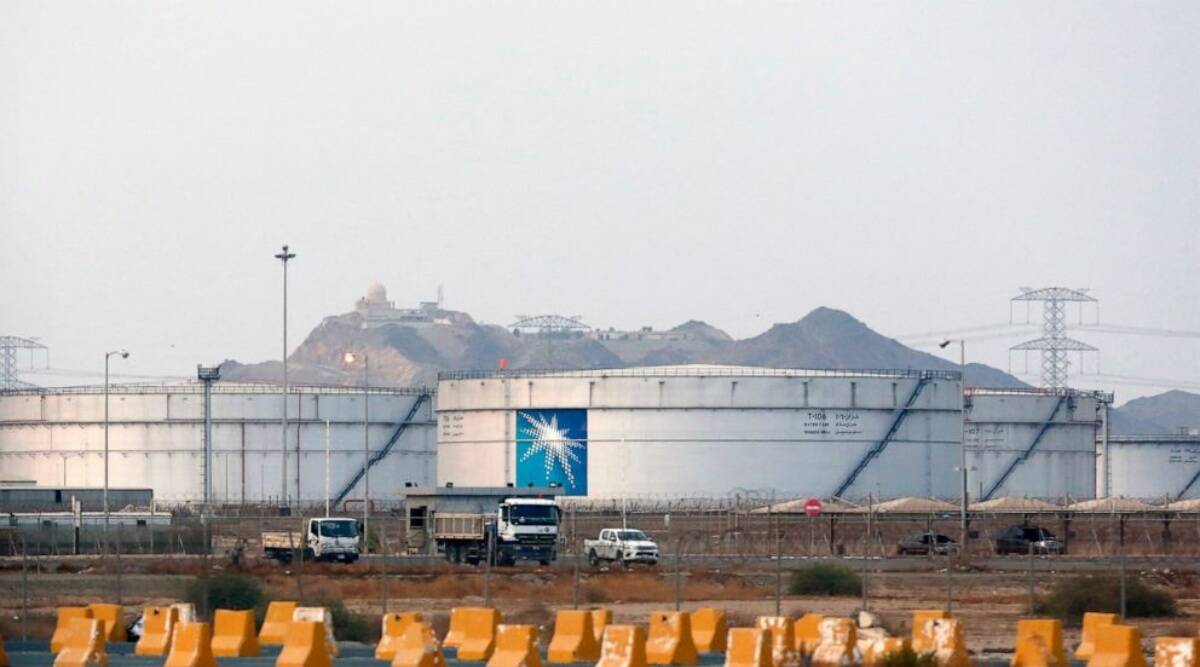Yemen war

Copyright infringement is not intended
Context: The Yemen’s Houthi rebels hit Aramco, other facilities in Saudi Arabia.
Background:
- The ongoing conflict between Saudi Arabia and the Iran-backed Houthi rebels has taken a devastating toll on Yemen since 2015.
- Yemen has been drawn into a civil war since 2014 when the Iran-backed Houthis ousted the government.
- The rebels took control of the country’s northern parts, including the capital, Sanaa, forcing the internationally recognized government to flee to the south.
- The Saudi-led coalition has been fighting the rebels in Yemen since 2015.
- In response, the Houthis have frequently targeted the kingdom’s southern region with missile and drone attacks.
- Although there was no direct intervention by Iran, who support the Houthis, the conflict has been widely seen as an extension of the Iran–Saudi Arabia proxy conflict and as a means to combat Iranian influence in the region.
- UAE: After five years of fighting, the United Arab Emirates pulled out of the war last year. And the UAE-backed Southern Transitional Council wants southern Yemen to be an independent entity. In January 2022, the Houthis launched air strikes against the UAE, a rare move that could lead Abu Dhabi to reinvigorate its involvement in a conflict it has mostly tried to walk away from in recent years.
What caused the current crisis?
Several factors widened these political divisions and led to full-scale military conflict.
- Fuel price hikes: Under pressure from the International Monetary Fund, which had extended to Yemen a $550 million loan premised on promises of economic reforms, Hadi’s government lifted fuel subsidies in 2014.
- Houthi takeover: The Houthis captured much of Sanaa by late 2014. Reneging on a UN peace deal, they consolidated control of the capital and continued their southward advance. Hadi’s government resigned under pressure in January 2015 and Hadi later fled to Saudi Arabia.
- Military division: Military units loyal to Saleh aligned themselves with the Houthis, contributing to their battlefield success.
- Saudi intervention: In 2015, with Hadi in exile, Riyadh launched a military campaign—primarily fought from the air—to roll back the Houthis and restore the Hadi administration to Sanaa.
Humanitarian crisis:
- The country’s humanitarian crisis is said to be among the worst in the world, due to widespread hunger, disease, and attacks on civilians. According to the UN, 50,000 Yemenis are starving to death and 16 million will go hungry this year. They are depending on food assistance to survive,
- As the UN-backed, two-party peace process has stalled, some experts have suggested that better representing the many parties involved in the conflict would yield better results.
- The crisis in Yemen is not only about the Saudi-Houthi conflict. It has many more dimensions: humanitarian, civil, geopolitical and sectarian.
- The Houthis are living in permanent war, unable to provide even basic services to the people in the territories they control.
- Yemen’s internationally recognised government practically lacks any power and legitimacy at home as the war is being fought by other players.
What’s the latest in the conflict?
- The six-nation Gulf Cooperation Council invited the Houthis for talks on Yemen on the conflict in Riyadh, but rebels said they would welcome talks with the coalition if the venue is a neutral country, including some Gulf states.
- It also said that the priority was lifting “arbitrary” restrictions on Yemeni ports and Sanaa airport.
U.S. and Yemen war:
- One of the first key foreign policy decisions that President Joe Biden took after assuming office was to end the U.S.’s support for Saudi Arabia’s six-year-long war on Yemen.
- He halted weapons sales to Saudi Arabia, appointed a Special Envoy for Yemen, and removed the Shia Houthi rebels, who control the northwestern parts of the Arab country, from the list of foreign terrorist organisations.
- This is part of his larger attempts to rewrite the U.S.’s West Asia policy which, under Mr. Trump, was almost entirely focused on containing Iran.
India and Yemen crisis:
- The Government of India has expressed concerns about the continued intensification of military operations in Yemen and called upon all parties to the conflict to immediately cease fighting.
- India has maintained healthy diplomatic ties with all invested nations including Iran and Saudi Arabia, while keeping its own interests afloat and ensuring the safety of all Indians.
- India's Yemen policy: India has maintained neutrality as it shares a deep relationship with Yemen and other Middle Eastern countries like Saudi Arabia and the UAE.
- Oil security:
- Violence in Yemen could disrupt oil supplies and increase prices as Saudi Arabia is the world’s largest exporter of crude oil.
- Yemen’s proximity to the Bab el-Mandeb Strait which connects the Gulf of Aden to the Red Sea, is also a concern. If the strait gets blocked, tankers would have to take a longer route around the Horn of Africa, increasing the cost of their voyages and eventually resulting in higher crude oil and liquified natural gas prices.
What are the prospects for a solution to the crisis?
- UN-backed peace negotiations have made limited progress. The 2018 Stockholm Agreement averted a battle in the vital port city of Hodeidah, but there has been little success in implementing the accord’s provisions.
- Yemen can find a way out of the current crisis provided the war is brought to an immediate end and the country is given diplomatic assistance.
- Once a ceasefire between the two main rival blocs is achieved, the U.S. and its regional allies could call for a multilateral conference involving all stakeholders to discuss Yemen’s future.
- Ending the war is in the best interest of all parties.S. should push Saudi Arabia and its allies to end their blockade of Yemen and initiate talks with the country’s multiple rebel factions.
https://indianexpress.com/article/world/yemens-houthi-rebels-hit-aramco-other-facilities-in-saudi-arabia-7828352/



1.png)
